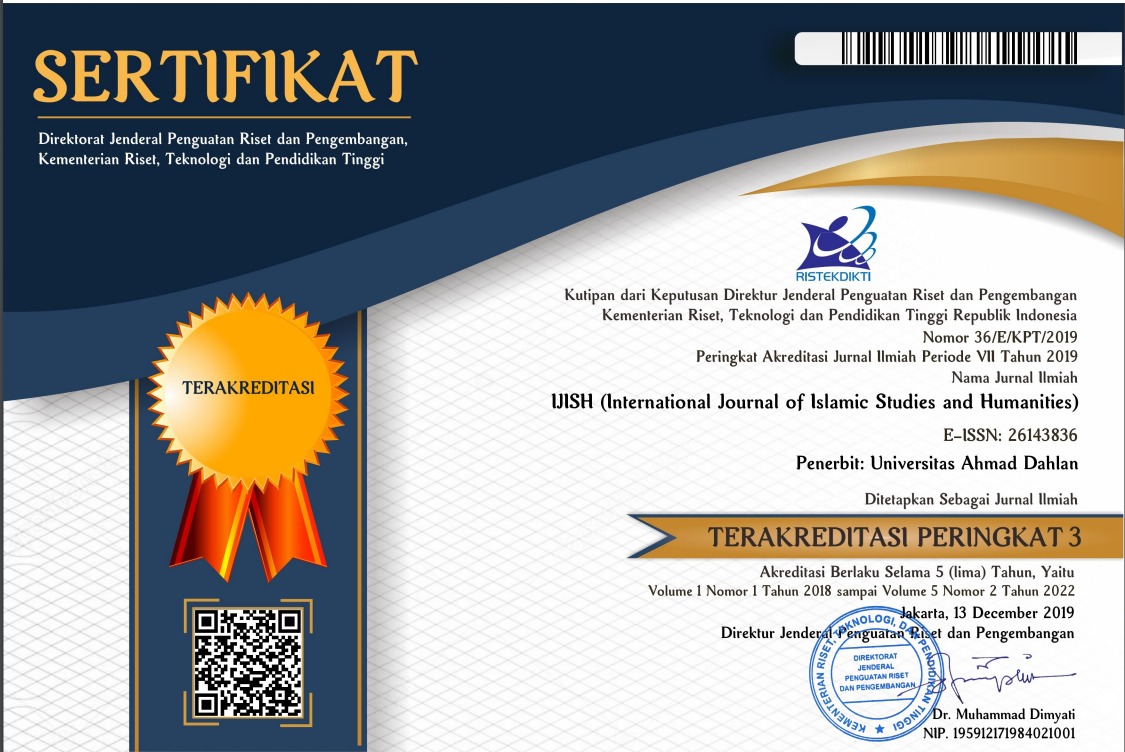The Substance of The Formal Prohibition of The Riba: Islamic Finance and The Tie with The Real Economy
DOI:
https://doi.org/10.26555/ijish.v1i1.134Keywords:
Islamic Finance, Equity Financing, RibaAbstract
Islamic Financial Institutions come up with sharia-compliant products mimicking one of their conventional counterpart. This particular development is one of the unintended consequences under the interpretation of the prohibition of interest. Islamic Finance Institutions need to find substitute for profit-generating mechanism. There is no consequential difference between ‘interestfree’ and interest-bearing products on the practical level. This paper attempts to deal with the question of the interpretation of riba on a theoretical level. This paper argues that equity-financing should be preferred to debt-financing. In doing so, this paper embraces a juristic approach to arrive at the intended conclusion. However, debt-financing could be utilised where deemed appropriate and no equity-financing method is applicable to a particular project.Downloads
Published
2018-04-07
How to Cite
Mustofa, L. (2018). The Substance of The Formal Prohibition of The Riba: Islamic Finance and The Tie with The Real Economy. IJISH (International Journal of Islamic Studies and Humanities), 1(1), 56–68. https://doi.org/10.26555/ijish.v1i1.134
Issue
Section
Articles
License
Authors who publish with IJISH (International Journal of Islamic Studies and Humanities) agree to the following terms:
- Authors retain copyright and grant the journal right of first publication with the work simultaneously licensed under a Creative Commons Attribution License (CC BY-SA 4.0) that allows others to share the work with an acknowledgment of the work's authorship and initial publication in this journal.Â
- Authors are able to enter into separate, additional contractual arrangements for the non-exclusive distribution of the journal's published version of the work (e.g., post it to an institutional repository or publish it in a book), with an acknowledgment of its initial publication in this journal.
- Authors are permitted and encouraged to post their work online (e.g., in institutional repositories or on their website) prior to and during the submission process, as it can lead to productive exchanges, as well as earlier and greater citation of published work.

This work is licensed under a Creative Commons Attribution-ShareAlike 4.0 International License.






